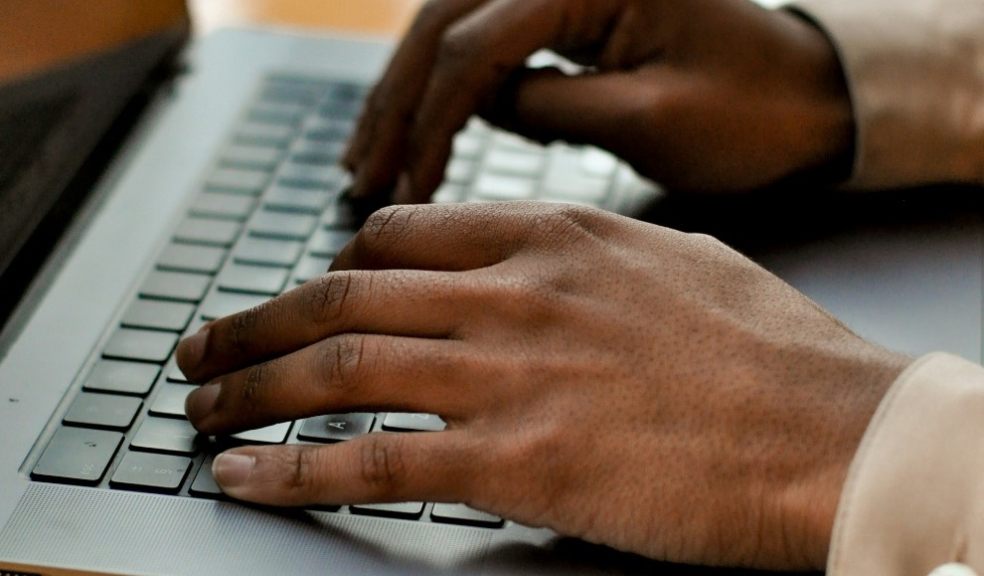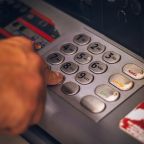
The Impact of Digital Plagiarism Checkers on Modern Education
Many students today are increasingly concerned about academic integrity and the risk of digital plagiarism in their coursework. The temptation to copy content has become more common, much like the challenges faced by sites such as non GamStop casinos, where fairness and authenticity are constantly monitored. To address this, educational institutions now widely use plagiarism detection software to identify unoriginal or improperly cited material. These tools not only help prevent cheating but also promote responsible research and originality.
This blog explores how such technologies are shaping the standards and expectations in modern education.
The Importance of Academic Integrity in Modern Education
Academic integrity plays a crucial role in education today. It promotes honesty and responsibility among students, fostering a culture of trust within academic communities.
Definition of plagiarism
Plagiarism means using someone else's work or ideas without giving proper credit. This can include copying text, but it also covers images, music, and other creative content. Students often face challenges when they misunderstand what constitutes plagiarism. Misusing sources not only harms their learning but also threatens academic integrity.
Academic dishonesty affects both individuals and institutions. Plagiarism undermines authenticity in academic writing education and tarnishes reputations. Maintaining ethical writing standards helps guarantee fairness in the educational environment.
Understanding plagiarism is vital for promoting respect for intellectual property rights among students and educators alike.
Negative impact on academic progress
Academic dishonesty significantly hurts students' learning journeys. Engaging in plagiarism often leads to missed opportunities for genuine understanding. Students who copy work do not develop critical thinking skills or creative abilities. As a result, these individuals struggle with future academic challenges.
Plagiarism can also impact grades and overall academic progress. Poor performance on assessments hampers student motivation. Many institutions suffer reputational damage due to incidents of cheating within their ranks, affecting community trust as well.
Academic integrity remains vital for personal growth and educational success in today's digital age, where online learning is prevalent.
Detrimental effects on personal and institutional reputation
The negative impact on academic progress extends beyond individual students. Academic dishonesty tarnishes both personal and institutional reputations. Students caught plagiarizing risk losing trust among peers and educators. Their chances for future scholarships or job opportunities diminish significantly.
Institutions also suffer from these actions. A reputation for tolerating plagiarism can lead to decreased enrolment rates. Schools may struggle to attract top talent, ultimately affecting their standing in educational rankings.
Maintaining academic integrity is essential for preserving the credibility of institutions in today's competitive landscape, and promoting ethical behaviour through effective plagiarism prevention tools helps secure this integrity long-term.
Benefits of Plagiarism Checkers
Plagiarism checkers help students submit original work, thus fostering a culture of honesty. They empower educators to maintain high standards and guarantee fair assessments across their classes.
Prevention of cheating and promotion of ethical behavior
Plagiarism checkers actively prevent cheating and promote ethical behaviour in education. These tools encourage students to produce original work and understand the importance of academic integrity.
By highlighting potential issues, they push learners to think critically about their writing processes. Educators find these resources beneficial, as they help maintain standards and uphold institutional reputation.
These checkers enhance student perception of ethics. They instill a sense of responsibility toward citations and copyright infringement. Using such technology fosters an environment where authentic assessment thrives alongside true learning experiences.
By reinforcing academic honesty, plagiarism checkers play a vital role in shaping future professionals who value originality.
Benefits for educators and students
Digital plagiarism checkers offer significant benefits for educators and students. They help educators maintain academic integrity. By using these tools, teachers can detect instances of internet plagiarism easily. This process not only saves time but also promotes ethical behaviour among students. Knowing that their work will be checked encourages learners to produce original content.
Students gain from these tools as well. Digital plagiarism checkers improve the quality of their writing by highlighting areas that require better paraphrasing or citation. They provide instant feedback, helping students learn to avoid unintentional copying.
With this guidance, students develop stronger research skills and enhance their understanding of academic ethics in modern education.
Time efficiency and deterrence effect
Plagiarism checkers save valuable time for both educators and students. They quickly scan documents, highlighting potential issues in seconds. This efficiency allows teachers to focus on providing constructive feedback instead of spending hours reviewing each paper.
Students can also submit original work with confidence, knowing that the checker has flagged any areas of concern.
These tools act as a strong deterrent against academic dishonesty. Awareness of plagiarism detection discourages students from copying or reusing material without proper citation. As educational technology advances, institutions can better promote ethical behaviour and uphold academic integrity among their learners.
Limitations of Plagiarism Checkers
Plagiarism checkers cannot catch every form of plagiarism. They often miss subtle cases or rephrased content. Educators must still implement other strategies to uphold academic integrity.
Explore more to discover the full picture of this crucial topic.
Inability to detect all types of plagiarism
Many plagiarism checkers struggle to identify all forms of copying. They often miss cases of paraphrasing, where students change a few words but keep the original ideas intact. Some software may not recognise obscure sources or references either.
A significant issue arises with self-plagiarism. This occurs when students reuse their previous work without proper citation. Such acts can go undetected by digital tools, leading to false claims of originality.
Another growing challenge involves AI and plagiarism. AI-generated content can appear unique while evading traditional detection methods, complicating efforts to guarantee academic honesty.
The limitations of these programmes highlight the need for active monitoring by educators in modern education settings.
Need for additional measures to prevent plagiarism
Plagiarism checkers play a vital role in modern education. Yet, they cannot catch every instance of plagiarism. Students still find ways to cheat that software may miss. Some forms of plagiarism are subtle and require human judgment to identify. For example, paraphrasing without proper citation can slip through the cracks. Generative AI tools like ChatGPT are now widely used by students, with many admitting to using them for homework and assignments.
Educators must take extra steps to guarantee academic integrity. Teaching workshops on citation methods can empower students to understand the importance of originality. Offering guidance on ethical writing supports honest practices in schools and universities.
Schools should also foster an environment where students feel comfortable discussing issues related to cheating and integrity. This approach encourages open dialogue about ethics in education, which is essential for developing responsible scholars and professionals in today’s world, reinforcing the concept of academic honesty further along this journey towards improvement.
How Plagiarism Checkers Can Improve Academic Integrity
Plagiarism checkers help promote ethical behaviour in education. They encourage students to submit original work. These tools also enhance the quality of submissions and guarantee fairness among learners.
Implementing them fosters a culture of integrity within academic institutions. Readers can discover more about their impact on modern learning practices.
Role in fostering professional ethics and originality
Digital plagiarism checkers play a vital role in fostering professional ethics and originality. These tools encourage students to produce their work. By highlighting potential issues with copied content, they prompt users to rethink their approach. Students develop better writing habits over time, understanding the value of genuine expression.
Educators also benefit from these checkers as they promote an atmosphere of honesty within classrooms. Faculty members can use the results to discuss academic integrity openly with their students.
This dialogue helps create a culture that values originality and ethical behaviour, essential components of modern education. The impact of digital plagiarism checkers on modern education is substantial; they help shape future professionals who respect intellectual property rights while striving for authenticity in their work.
Enhancing the quality of work and educational fairness
Plagiarism checkers significantly improve the quality of student work. These tools encourage originality and creativity. Students learn to express their unique ideas rather than copying others. This fosters a deeper understanding of subjects.
Fairness in education rises as plagiarism diminishes. Everyone competes on equal ground when students submit original work. Teachers can assess true skills and knowledge accurately. A culture of honesty develops, benefiting all participants in the learning process.
Legal compliance and global collaboration
Plagiarism checkers are essential for guaranteeing legal compliance in academic institutions. They help universities enforce copyright rules and prevent unauthorised use of intellectual property. By detecting unoriginal content, these tools allow educators to maintain consistent academic standards and protect the credibility of qualifications.
Beyond legal protection, plagiarism detection fosters trust in international academic cooperation. Cross-border partnerships in research and education depend on transparency and shared ethical principles. Just as global digital platforms rely on safe payment systems to protect transactions, universities depend on reliable plagiarism tools to validate the originality of student work.
This consistent approach promotes academic integrity across different countries and creates a foundation for stronger, more trustworthy international collaboration.
Conclusion
Digital plagiarism checkers reshape education today. They encourage honesty among students and teachers. These tools help maintain high academic standards. With better detection of dishonest work, schools can promote fairness and originality.
Embracing these technologies strengthens the commitment to academic integrity across institutions and supports a learning culture built on trust, responsibility, and transparency.




















